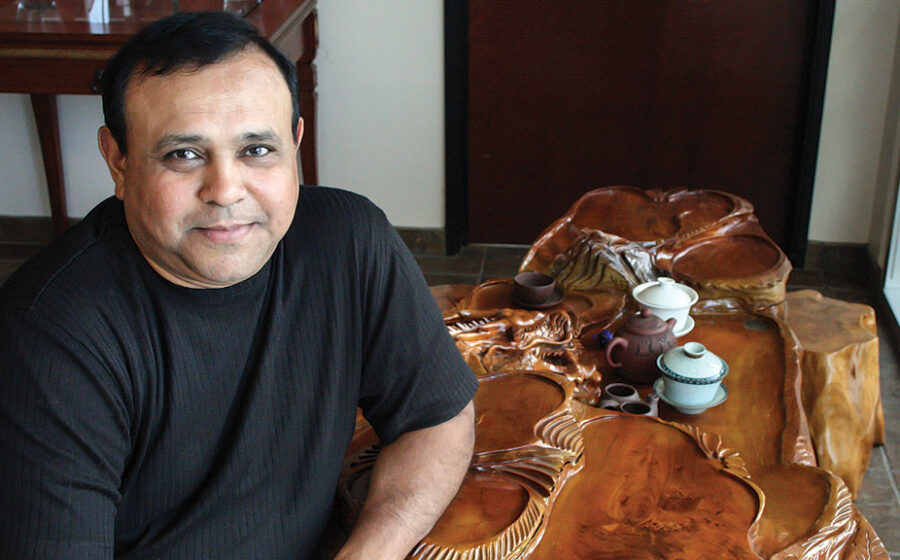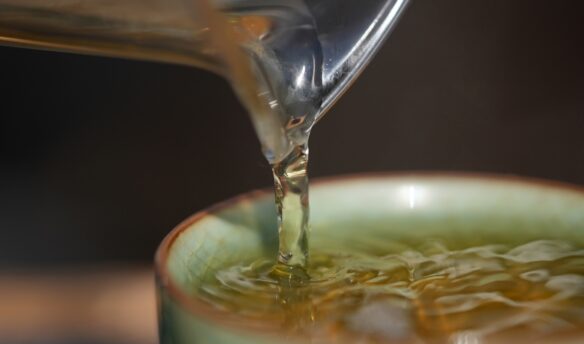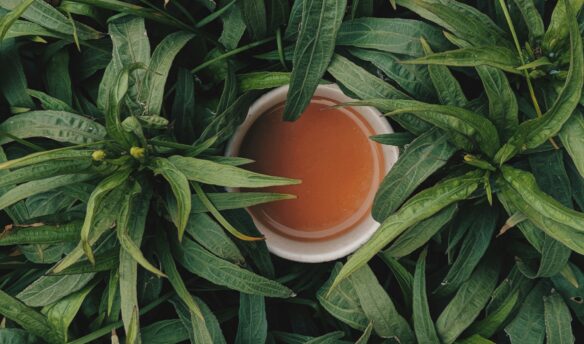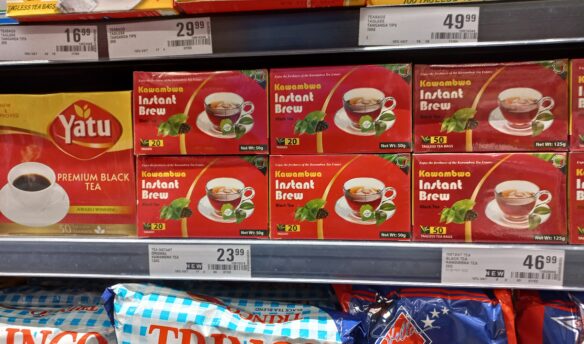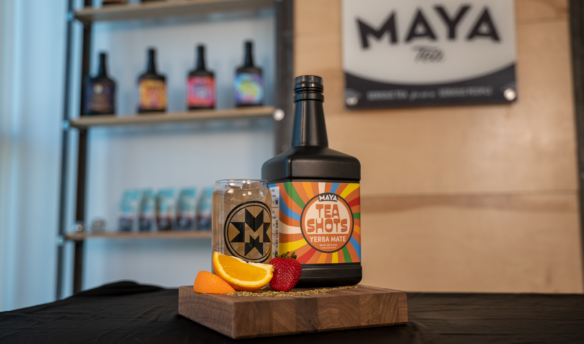[L]ike the rest of the tea community, we were shocked and saddened to hear that Devan Shah, owner of International Tea Importers, Chado Tea Rooms, and Waterfall Teas, had passed away. He was fifty-three and left behind his wife, Reena, son, Brendan, and daughter, Bianca.
Following this news, there have been many kind words written about Devan, and certainly many more spoken, likely through a few tears. Among those quieter memorials was one by our publisher, Jan Weigel. At the office the day we heard the news, she said, “Devan was the person who taught me about tea.” Before a tasting session at Chado, Jan had never found tea interesting or inspiring. After a long afternoon with Devan, that all changed.
In our 2012 Tea Almanac, we talked with Devan about his career and his love of tea. Here, as a remembrance to Devan, we’ve excerpted that interview so you can hear from Devan himself.
What was your first job in tea?
When I was in college I started working for a tea brokering company called the National Tea Company in the city where I am from, Coimbatore. This was 1982, and the city had become a tea auction center because some major companies had labor issues in what had been the big tea center in the area, a city called Kochi. The companies decided to move everything to Coimbatore. When you’re a broker, your job is to basically collect samples from different sellers who are conducting the auctions every week. On the average you would probably have 800 different lots that are being sold at an auction. You make smaller versions of those samples and send them out to your customers throughout the country. Everyone can’t be at the auction site, so they would keep us as their agents and pay a commission.
Is that how you really learned to taste tea?
Right. I’d taste at least a few hundred every week to make sure every tea was in order and that we weren’t buying a tea that wasn’t the right strength or was too fluffy or very light. All kinds of things came out depending on flaws in the manufacturing.
That’s about the time you established yourself in the United States.
Yes, I set up shop in the United States in 1989. I moved here in 1986 and spent some time working with my cousin in New York; he owned some Indian grocery stores. Around 1984, the Indian government made this bonehead decision to overnight put a duty on all tea leaving the country, which angered a lot of companies and got Indian tea kicked out of the blends of Western buyers. Lipton was particularly angry. At the end of the 1980s they reversed that decision, and there was this opportunity to see if those teas could be sold back into the US market. I said, “OK, if we start this process it might not work right away, but slowly the quality of tea will create some kind of market.”
What was the US specialty tea industry like then? Did it even exist?
A number of coffee shops would be buying, and some suppliers were doing good work. Upton Tea Company out of Massachusetts was the biggest mail-order company, but they mainly served consumers. Smaller shops needed a place where they could get different teas, and so I started importing single-estate teas from the Nilgiris and then from Darjeeling and Assam. In the early nineties, tea got a big boost with the opening of the T Salon in New York City. It opened under the Guggenheim, and that was one of the biggest instances of press that tea has ever received in the United States. In the same year, Chado opened on the West Coast, and that store sold 300 different types of tea just from Mariage Frères [a specialty supplier based in Paris].
How did the surge in chai develop?
It coincided with the rise of Indian foods of all kinds in the United States. You had Indian spices and Indian ready-made meals that you could just put in the microwave. Live Chai, a company out of Colorado, was one of the first people in the market, and then Oregon Chai, opened by Heather Howitt [in 1994]. They were both customers of mine. Oregon Chai went on to become the leader in the market.
What led to your recent decision to open two Chado retail outlets in Mumbai?
In the last eight years or so, India has been bombarded with all kinds of investments from overseas. The outsourcing of technology companies has really helped the Indian economy, and there’s a lot more discretionary income. Also, people are traveling. All of these Indians who traveled overseas for different reasons—they would go to Germany, China and Japan and bring back great teas, but they wouldn’t have anywhere to buy more back home. We realized we needed to introduce this to India. Mumbai is the place to do anything you want to do. Like New York, if you do something well in Mumbai, you get a great amount of exposure.
How do you envision Chado evolving in the United States?
Some of that will be determined by my wife, Reena. She runs the Chado tearooms. She is the face of Chado, and what Chado is today is all because of her. She is responsible for the flair and the style that goes into making Chado a success. The Hollywood store should be a great location for us. If you come to Kodak, you can’t miss Chado. We will probably open a few more stores around Southern California, but we don’t know how much bigger we really want to get on that front.
What drives you to continue to work in tea and develop new projects after so many years?
I don’t know what else I’d do. Tea has become such an integral and enjoyable part of my life. I enjoy drinking it, tasting it, talking about it. When I first started in the United States, I said to people, “If you want to do a tea tasting, I will come.” I’ve done tea tastings for people all over the country, at all hours of the day. Also, tea is a mystery beverage. It evolves every year. It changes and changes, and that’s fun.



